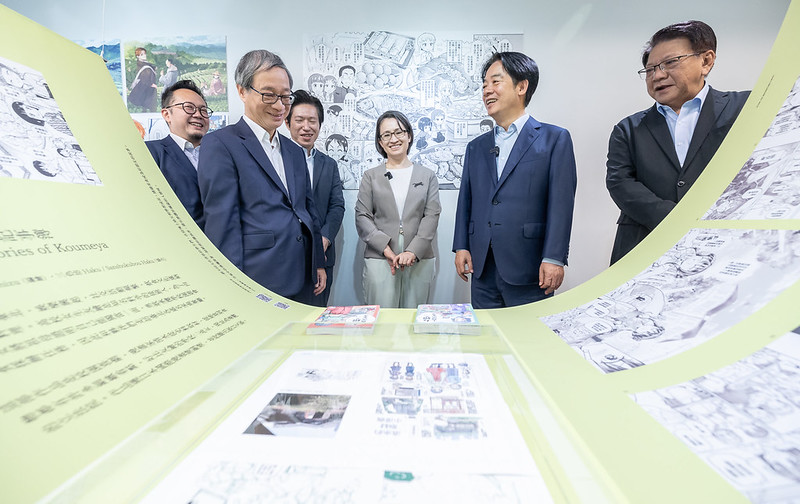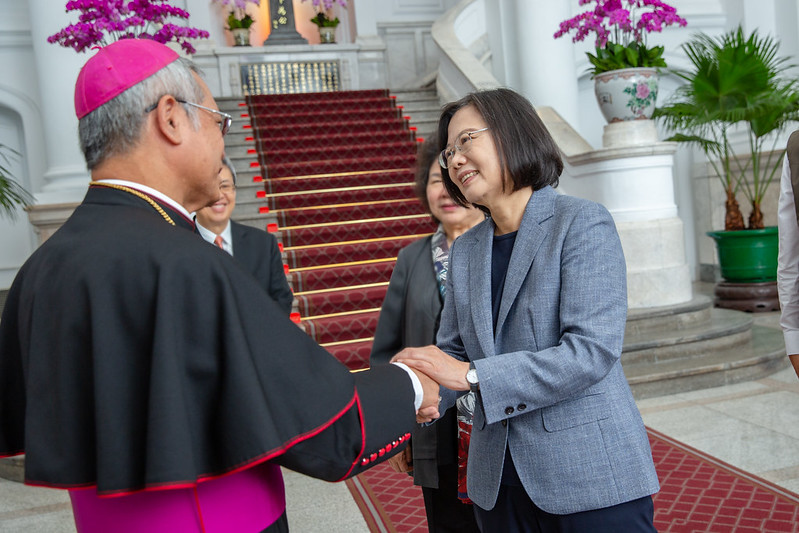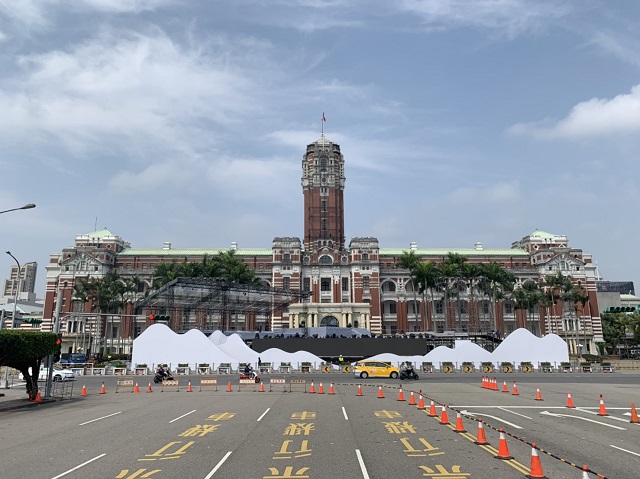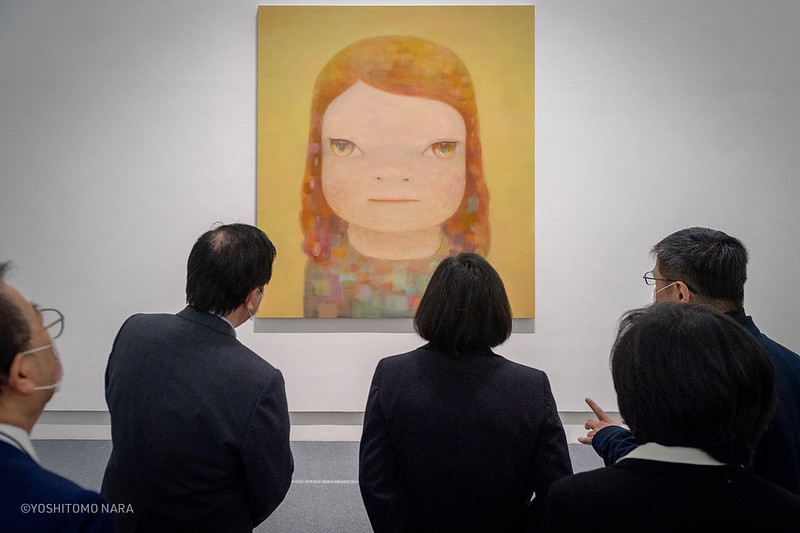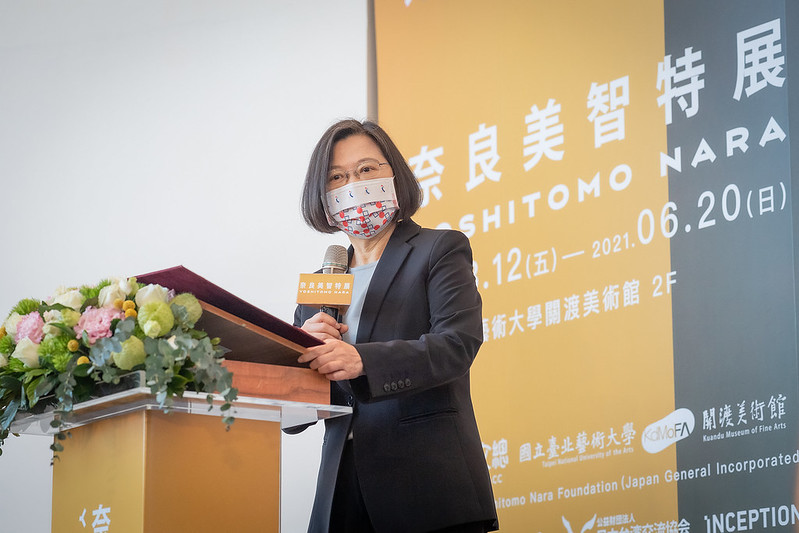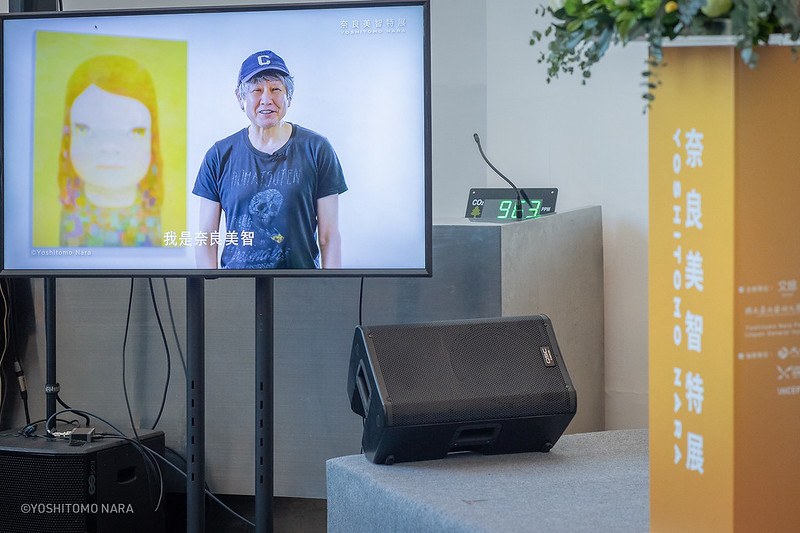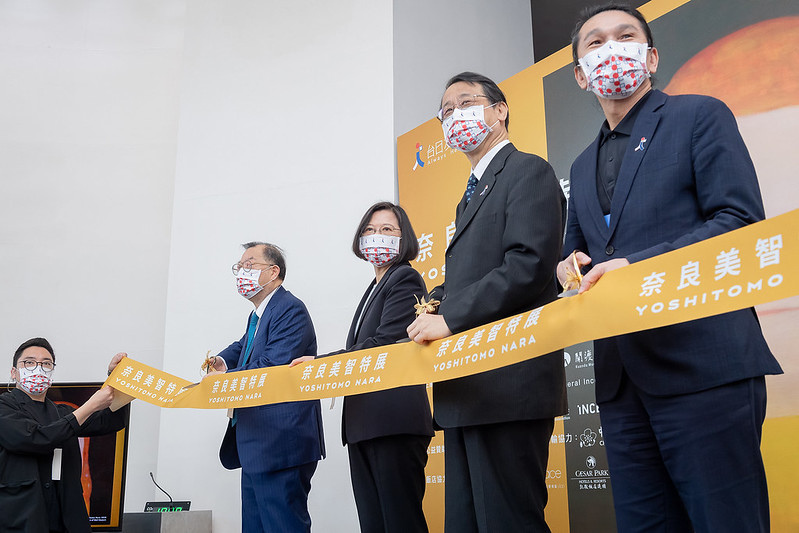News & activities
 News releases
News releases
On the morning of March 11, President Tsai Ing-wen attended a press conference for the opening of the Yoshitomo Nara Special Exhibition in Taiwan, which coincided with the tenth anniversary of the Great East Japan Earthquake of 2011. In her remarks at the event, President Tsai said that ten years ago, Taiwan and Japan were profoundly affected by the disaster but stood by one another to provide mutual assistance. The president expressed hope that, by remembering the devastating impact of the earthquake, and by commemorating our dear friendship, Taiwan and Japan will continue to support each other through the challenges we face. She added that the Taiwan government will strive to reflect on the true cost of nuclear energy and accelerate a shift to alternative energy sources.
Upon arriving at the venue, President Tsai first toured the exhibition before delivering remarks at a press conference. Expressing excitement for the long-awaited opening of the first Yoshitomo Nara Special Exhibition in Taiwan, the president said that over the past few weeks, she had seen Mr. Nara on Twitter sharing many of his thoughts on his quarantine in Taiwan and his preparations for the exhibition. She added that she had the chance to meet with Mr. Nara a few days prior, giving her an even deeper appreciation for his work when touring his exhibition.
President Tsai mentioned that she was touched to see a new work that Mr. Nara had created especially for Taiwan, entitled "Hazy Humid Day," and was truly grateful for his dedication. Observing that Mr. Nara's trip to Taiwan for the exhibition was made possible by the hard work of many people, the president highlighted the friendship that Taiwan and Japan have cultivated over the years, and particularly since March 11, 2011, when the warmth and mutual support between us became especially apparent.
The president noted that after the shock of that day, Mr. Nara's work took on greater warmth as well as a soothing power, and said she is sure each person who sees his work will find something uniquely touching in it. She recommended that everyone come and see the exhibition for themselves instead of hearing about it from others, and said she was confident that Mr. Nara's many followers across Taiwan were all looking forward to seeing it, with the beautiful campus of Taipei National University of the Arts enhancing visitors' appreciation of his works.
President Tsai noted that March 11, 2021 is the tenth anniversary of the Great East Japan Earthquake, and that ten years ago, the people of Taiwan and Japan were both deeply affected, but nevertheless stood by one another during the disaster to provide support and assistance. Today, a decade later, Taiwan has collaborated with the Japan-Taiwan Exchange Association to mark the Taiwan-Japan Friendship Year with a series of events, including the Yoshitomo Nara Special Exhibition as well as a Tohoku Friendship Special Exhibition, concert, and market at the Huashan 1914 Creative Park in Taipei. She said she hopes that these events can promote an enduring friendship between Taiwan and Japan.
President Tsai observed that these events are going forward during the pandemic thanks to the tireless efforts of Hiroyasu Izumi, Chief Representative of the Japan-Taiwan Exchange Association Taipei Office, and our many Japanese friends, as well as support from the General Association of Chinese Culture and others across Taiwan.
Emphasizing the importance of remembering the devastation of the earthquake and commemorating our friendship, the president expressed hope that Taiwan and Japan will continue to support each other through the challenges we face. She added that we all hope the pandemic will subside soon, the Tokyo Olympics can be a success, and the people of Taiwan and Japan can once again have the pleasure of traveling to visit each other.
President Tsai said that she will lead Taiwan's government to reflect on the true cost of nuclear energy and to accelerate our energy transformation, and expressed optimism that Taiwan and Japan, as neighbors in the Pacific, can develop sustainably and capitalize on the opportunities presented by renewable energy. The president concluded her remarks by wishing the Yoshitomo Nara Special Exhibition every success, not just for its Taipei leg, but also at subsequent venues in Tainan and Kaohsiung as well.
Following her remarks, the president participated in a ribbon-cutting ceremony with other distinguished guests in attendance and posed for a group photo.
